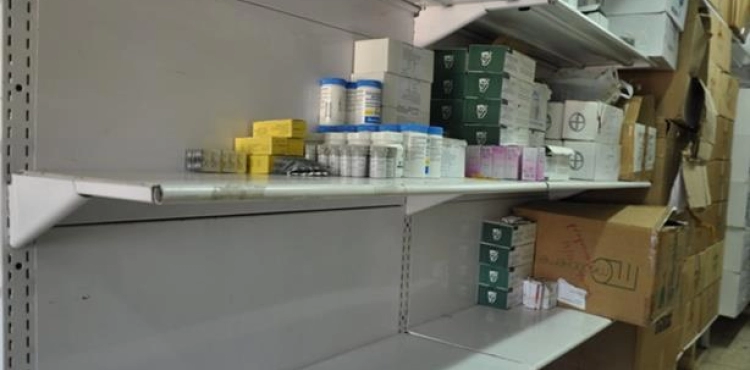The Ministry of Health in the Gaza Strip warned on Sunday of serious repercussions for the shortage of medicine, especially the main ones in hospitals and facilities of the ministry.
"The suffering of the patients in the Gaza Strip due to the depletion of 52 percent of their basic and specialized medicines and the deprivation of hundreds of children of the therapeutic milk can not be expected to have serious consequences for their health," ministry spokesman Ashraf al -Qadra told a news conference held at Rantissi Hospital.
He called on all parties concerned to take urgent action to save hundreds of patients and children.
Mohammed Abu Salmiyeh, director of Rantissi Hospital, blamed the lack of medicine in the Gaza Strip, the deterioration of health and humanitarian indicators due to the continued siege and the denial of access to medical staff, and preventing 45% of patients from leaving Gaza to continue their treatment in specialized hospitals inside the Green Line.
He pointed out that hundreds of children are banned from therapeutic milk, in addition to the paralysis of treatment protocols for cancer patients after the depletion of 62% of their specialized drugs by 35 classes for about 8,000 patients with cancer.
He pointed out that there is a shortage of blood transfusion tubes for children in dialysis departments, which is a danger because of the deprivation of 40 children from receiving dialysis sessions, which reaches three sessions a week. Noting that there is a severe shortage of the hormone "arthropyutin" necessary to treat anemia of chronic kidney patients, which puts about 1150 patients with renal failure and kidney transplantation in front of a difficult option for the process of continuous blood transfusion.
He said that about 125 patients with hemophilia, 50% of whom are children, suffer from lack of coagulation factor 8 and vector 9, in addition to the treatment of increased iron deposition in patients with thalassemia.
He explained that there is a deficit in primary care centers and the provision of therapeutic drugs to thousands of patients suffering from chronic diseases after the lack of 68% of their medicines, and the depletion of vitamins and supplements for pregnant women, and children´s medicines and psychological and neurological drugs.
"The worsening health situation is a disaster for Gazan patients," he said. "These serious and severe data indicate that patients are vulnerable to health setbacks.
He appealed for faster rescue and treatment for patients. And called on all institutions, gatherings and charities to mobilize the necessary support for the provision and purchase of medicines for patients.












